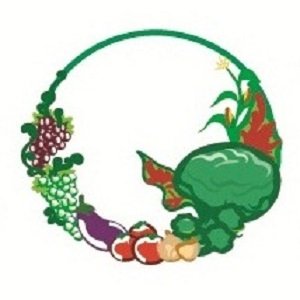What are we building together?
Way back in March and April of this year—when the seeds of crops in this week’s CSA box were purchased and planted—I wrote a series of newsletters about Big Picture shifts in the world of local, organic agriculture. And about how we at Featherstone Farm are responding by doubling down on our decades-long commitment to a triple bottom line of social, environmental, and small farm financial sustainability.
I am returning to this Big Picture writing again this fall, after a growing season filled with humility inspiring moments (for Featherstone yes, and especially for me, personally). We succeeded in many of the things that we aspired to when I wrote this spring (item 1: the wonderful new 15,600 sq ft high tunnel that we built this summer, and which is now chock full of spinach for your winter boxes!). But we have had to recalibrate on others, in line with our Mission Statement and the realities of the “industry headwinds” that I wrote about on February 6, 2023.
One way we are recalibrating is by diversifying the sourcing of crops and farm products in this winter’s CSA boxes. Not just by “buying in” shiny new “bells and whistles” from any producer in the region. But by searching out other farmers who share Featherstone Farm’s mission and vision of sustainability and building lasting relationships with them for the future.
Our 5+ year crop exchange with Peter Seeley and Spring Hill Farm is a prime example of this in action, one that we will write about in future newsletters. As is our 3+ year relationship with Meadowlark Mill. It is this story of small grains (wheat, oats etc.) that illustrates best the ways in which vision and humility co-exist at Featherstone Farm.
When I wrote these posts last spring, we had over 20 acres of winter wheat planted; it really looked like small grains would be a key part of farm plan for the long term (with big benefits to soil and vegetable crop health, in particular). Then it all crashed down on us this summer (see blog post of September 6). In a matter of weeks, winter wheat was (is) gone from the foreseeable future of Featherstone Farm. Humbling, to say the least!
But the basic idea of providing organically grown, locally produced wheat flour in winter CSA boxes does not have to be a casualty of this meltdown, we concluded this fall! Rather, we can take the relationship we developed with John and Halee Wepking of Meadowlark Mill as growers and build on it as customers of their fine grain products. We see how resourceful and innovative these two have been in evolving a traditional WI grain farm in the direction of real sustainability. We support that evolution as farmer-peers and as partners in the community of sustainability and we want you, too, to be part of this effort as you are enjoying terrific flour, rolled oats and other products in this winter’s boxes!
In subsequent newsletters, we will write about why it makes sense to us to include locally produced honey or apples in FF winter CSA shares. Or even dried fruits and nuts from farms that we know and love in California, that we understand deeply share Featherstone Farm’s commitment to social and environmental and independent, small farm sustainability.
Much of this thinking rests on the fundamental idea that this work we are doing here at Featherstone is in service of a larger goal, which is to rebuild our food system for the better. That is why we believe in the value of building sustainable relationships with like-minded farmer-producers near and far, that we might share the wealth of this network with our core customers at Featherstone Farm! This is what we are attempting to do starting with this winter’s CSA boxes.
We sure hope you enjoy the “fruits” of our daily work here on the farm. It is a joy to share fresh, nutritious, organic produce with you throughout the long winter.
Gratefully- J

